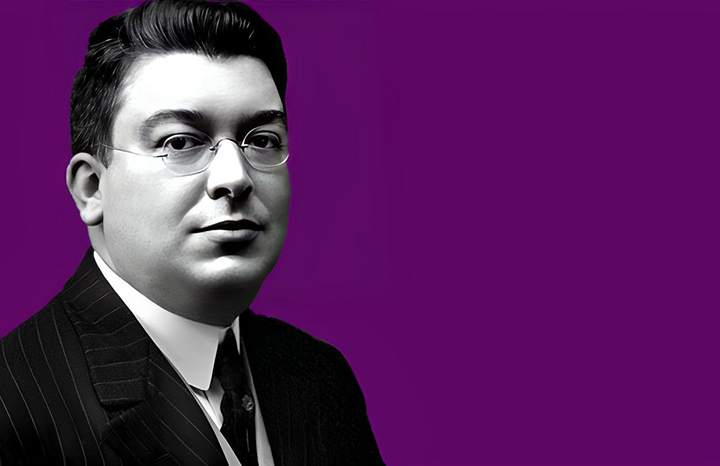
Havana, July 16.- Known as the most profound researcher of Afro-Cuban historical and cultural roots, Fernando Ortiz, born on this day in 1881, is considered the wise man par excellence; his legacy spans the sciences, culture, and society, ranking him as one of the most transcendental Cuban authors of the XX century.
He dedicated his life to discovering the Cuban essence, focusing especially on rescuing and revaluing the African presence in the island's culture.
A pioneer in the investigation of the processes of transculturation and the historical formation of nationality, he studied law at the University of Havana between 1885 and 1898, completing his bachelor's degree at the University of Barcelona in 1900 and earning his doctorate from the University of Madrid the following year.
Archaeology played a significant role in his career; He not only promoted the study of the indigenous past and the protection of its cultural legacy, but also founded and chaired the National Board of Archaeology and Ethnology, promoting the inclusion of these topics in the National History Congresses.
Ortiz Fernández is undoubtedly the pioneer of studies on African-origin culture in Cuba, comparable in his impact to figures such as the Mexican Alfonso Reyes.
His career began with a foray into the Afro-Cuban underworld, exploring marginalized life on the outskirts of Havana, following in the footsteps of sociologist José Antonio Saco and writer Miguel de Carrión.
Between 1915 and 1926, he held prominent positions, including his role as representative for the Province of Havana and vice president of the House of Representatives.
His works reflect notable political and sociolinguistic concerns; He served as a Representative in the House for a decade, beginning in 1917.
Between 1931 and 1933, he lived in Washington, where he carried out various activities denouncing the dictatorial regime that Gerardo Machado had imposed in Cuba.
At the beginning of his stay in the United States, he participated in the annual session of the American History Association, where he denounced the negative impact of various American economic and political factors on the historical development of The Largest of the Antilles.
His defense of the Black cause and his vindication of the indigenous heritage positioned him as a staunch representative of anti-racism in Cuba, exemplified in his work El engaño de las razas (The Deception of Races), written in 1944 and published two years later.
From these positions, he defended democracy as an essential way to safeguard freedom and national sovereignty.
Throughout his life, Ortiz received numerous decorations and distinctions, including the Medal of Meritorious Member of the Economic Society of Madrid (1928) and several honorary doctorates in Humanities by the University of Colombia.
The work as a man of science and researcher was recognized until the end, as at the Colloquium on African contributions in Latin America and the Caribbean organized by UNESCO in 1968.
He also directed numerous periodicals and founded cultural institutions which, throughout his life, contributed to the expansion of non-eurocentric conceptions of cultural anthropology and historiography in Cuba.
The current House of High Studies that bears his name, in the heart of the capital’s Vedado, offers the social sciences a space for the study and debate of existing and future knowledge, as well as for the development of research.
The Foundation, established on September 21, 1995, is a Cuban cultural institution of a public and civil character, non-governmental, with its own legal personality and assets, and non-profit.
Its main missions are the study and dissemination of the life and work of the wise Cuban, as well as the development of scientific research on Cuba's cultural identity.
Due to his profound investigative work, he has been called the third discoverer of Cuba, after Christopher Columbus and Alexander von Humboldt.
Fernando Ortiz Fernández died in Havana on April 10, 1969, at the age of 87. His work, declared Cultural Heritage of the Cuban Nation in 2019, enshrines the commitment of the State and its institutions to the custody, preservation, promotion, and dissemination of his legacy among current and future generations. (Source: ACN)